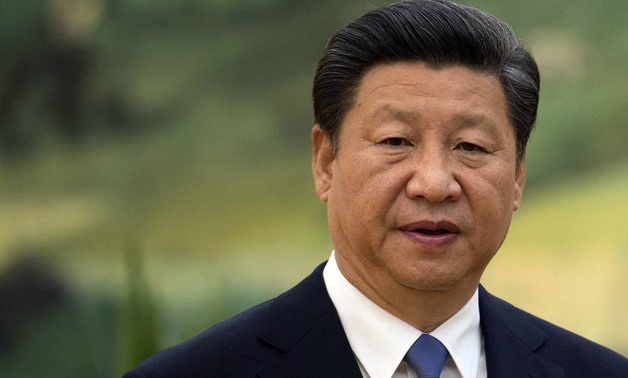
President Xi Jinping - Reuters
Hong Kong - 1 July 2017:China's President Xi Jinping warned Saturday that any challenge to Beijing's control over Hong Kong crossed a "red line", as thousands calling for more democracy marched through the city 20 years since it was handed back by Britain.
Xi spoke in a televised address after swearing in new Hong Kong leader Carrie Lam, who is already being cast by critics as a China stooge in a city where many are angry at Beijing's tightening grip on the freedoms of its nearly eight million people.
A huge security operation shut down large parts of Hong Kong for Xi's three-day visit, reflecting Beijing's concern that there should be no embarrassment ahead of a key Communist Party congress later this year which is expected to cement his position as the most powerful Chinese leader in a generation.
Xi said Saturday that any threat to China's sovereignty and security or to the power of the central government "crosses the red line and is absolutely impermissible".
He also warned against anyone endangering Hong Kong's constitution or using the city "to carry out infiltration and sabotage activities against the mainland".
The message comes as young activists have emerged calling for self-determination or even full independence for Hong Kong, which has infuriated Beijing.
Just hours after Xi left the city Saturday afternoon, thousands marched from Victoria Park to government offices in central Hong Kong in an annual pro-democracy protest which also called for the release of cancer-stricken Chinese dissident Liu Xiaobo, who was given medical parole earlier this week but remains on the mainland.
"Suppression by the regime has never let up and I don't see any end in sight," said activist Nathan Law, Hong Kong's youngest legislator, who was arrested Wednesday over an anti-China sit-in and attended the protest after being released Friday.
Xi insisted that Hong Kong had "more extensive democratic rights and freedoms than at any other time in its history" in his speech and pledged to uphold its semi-autonomous status.
But Beijing's foreign ministry declared Friday that the document signed by Britain and China which initiated the handover "is no longer relevant".
The Sino-British Joint Declaration gave Hong Kong rights unseen on the mainland through a "one country, two systems" agreement, lasting 50 years.
There are growing fears that freedoms guaranteed by the handover deal are now under threat, with Chinese authorities accused of abductions and interfering in a range of areas, from politics to media and education.
Xi cautioned that political conflict would "severely hinder" Hong Kong's economic and social development and called for education measures to promote China's national culture and history.
A proposal to include patriotic education in Hong Kong schools met with huge protests in 2012 and has since been shelved.
Pro-China supporters jeered and booed Saturday's democracy march, shouting: "Long live the communist party! This is China's soil!"
Earlier in the day, loyalists had also targeted a small peaceful march by activists in memory of the victims of Beijing's 1989 Tiananmen Square crackdown.
Leading activist Joshua Wong accused "pro-China gangsters and mobs" for instigating the attack.
Democracy campaigners including Wong were taken away in police vans, with two of them saying they had been hit by officers inside, before all were released.
Activists said they had been repeatedly targeted during Xi's visit.
"What we've experienced this weekend was a whole new level of intimidation and direct violence that's unprecedented," said campaigner Avery Ng of League of Social Democrats.
Lam's swearing in by Xi was deeply symbolic for frustrated activists who pushed for fully free leadership elections during the 2014 Umbrella Movement rallies but failed to win concessions.
Those protests were sparked by a Beijing-backed political reform package which said Hong Kong could have a public vote for leader, but that candidates must be vetted first.
The plan was voted down by pro-democracy lawmakers and the reform process has since stalled, with Lam making no commitment to revisit it any time soon.
Lam was selected by a pro-China committee, as were her predecessors.
Comments
Leave a Comment